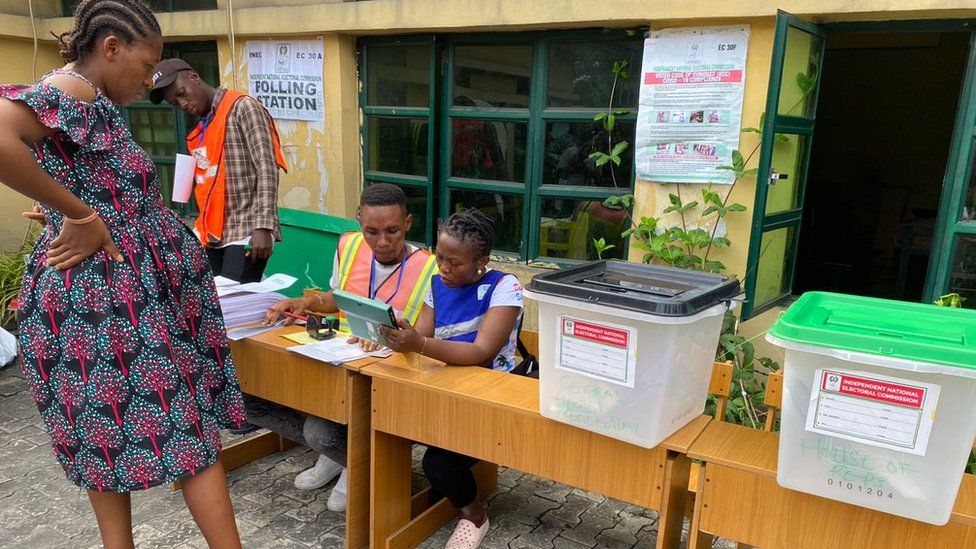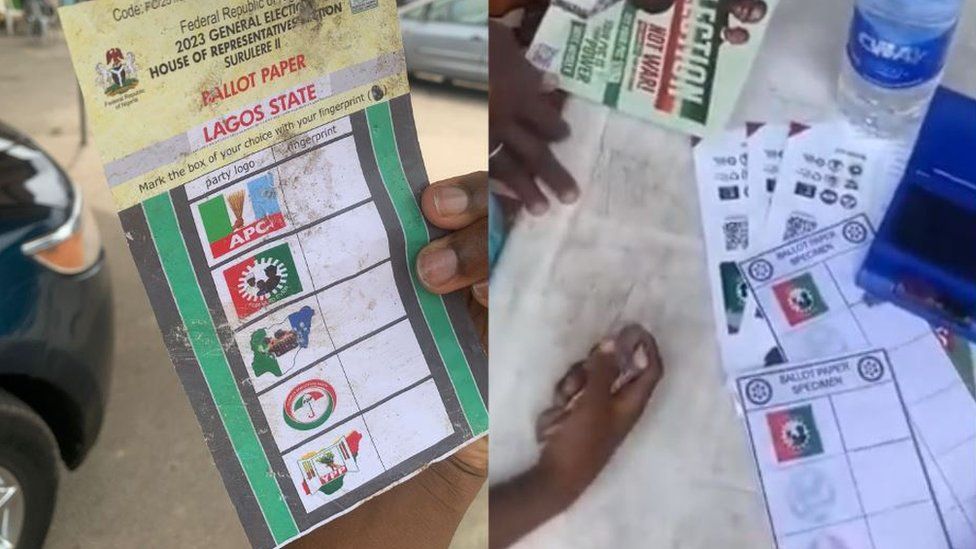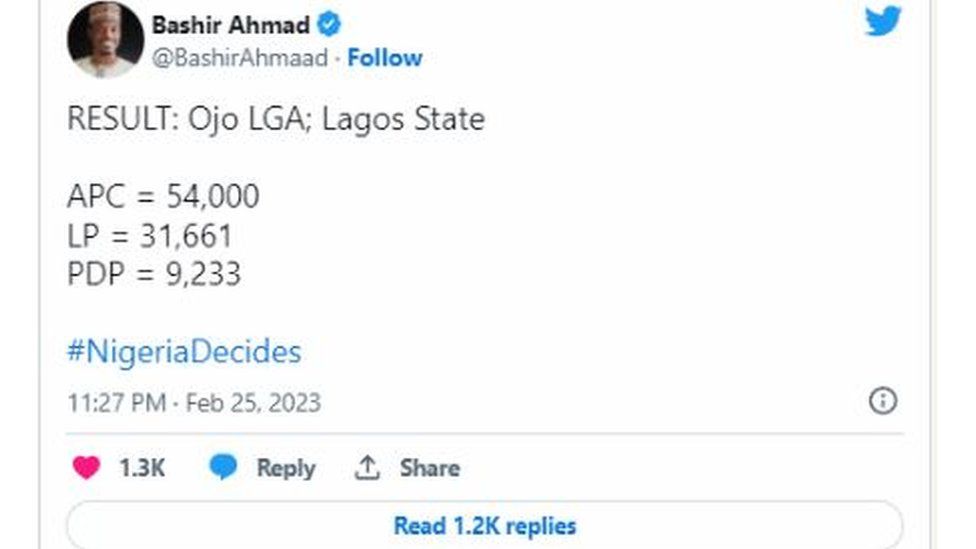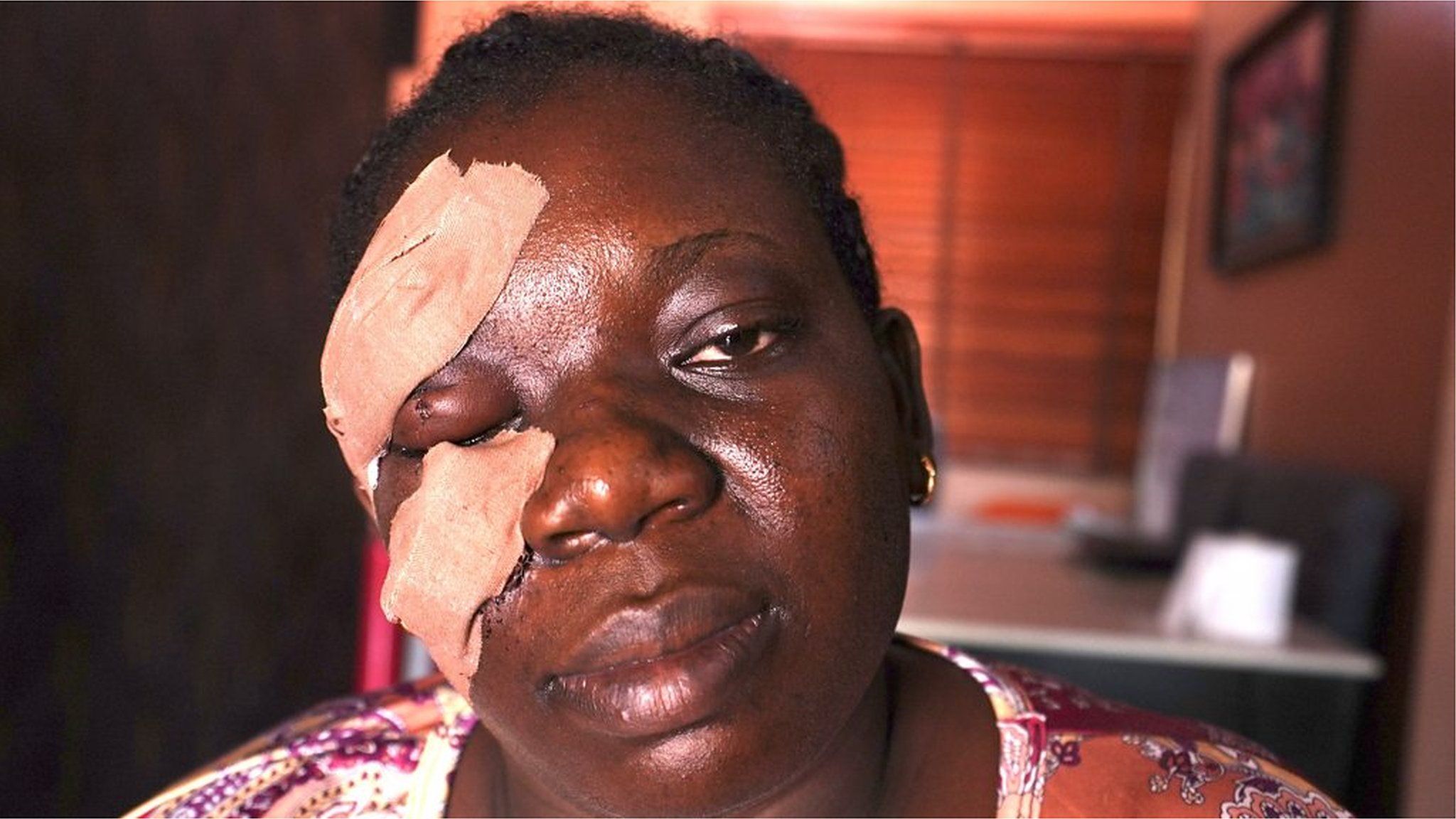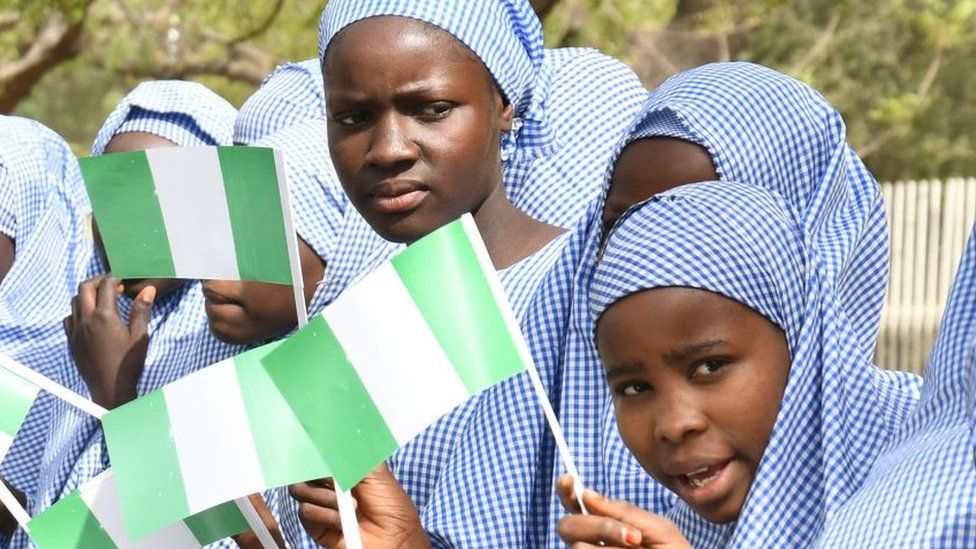BBC Afrika
False claims about Nigeria's electoral commission sparked concern as voters cast their ballots on Saturday. Videos containing old and misleading footage filmed in previous polls were also circulating.
While Nigerians await the official election results we have looked into some of these claims.
Social media in Nigeria, especially Twitter, has played a huge role in the dissemination of credible election-related news but at the same time it has been a major source of disinformation and misinformation.
In Nigeria, voters mark the ballot paper with their thumb print. Some videos purported to show ballot-stuffing, with a handful of people each using their thumb print on dozens of voting papers in support of their preferred party.
Another viral clip coached people on the best way to print their thumb on ballot papers while voting for a particular party.
Both sets of videos had strong regional and religious undertones and were widely shared on WhatsApp groups and Twitter.
Using reverse-image search tools, the BBC traced some of the videos of people thumb-printing ballots to elections in 2021 and 2019. It is not clear whether or not those ballot papers were ever used to vote.
The videos of people being coached on how to thumb print appear to be voter sensitisation projects carried out by the Labour Party in parts of Nigeria. The BBC has contacted Labour for comment but they are yet respond. The BBC could not establish where the videos were recorded.
But we know that the ballots shown in at least one of these viral videos were not real.
They are clearly marked "specimen" and bear little resemblance to the standard electoral commission ballot papers, seen below on the left.
Alleged rigging by electoral body
A bold claim that has gained traction, pushed largely by influencers on social media, alleges that Nigeria's Independent National Electoral Commission (Inec) is rigging the election count to favour the governing APC party.
Videos shared by accounts with large followings also suggested that Inec's server had been breached and unknown people were inputting fabricated election results.
Checks showed that the alleged website was not that of the electoral commission and was, in fact, a fake website that replicated the interface of Inec's election results viewing portal.
The web address has inconsistencies typical of a phishing website, such as having numbers instead of an actual website name.
Inec released a statement saying that although its server was "slow and unsteady" due to the amount of activity going on, it was not compromised.
There were also claims that Inec used the Bimodal Voter Accreditation (BVA) machine to add votes to the tally of a particular candidate. Inec denies this.
In 2021 Nigeria's electoral commission introduced the BVA machine to simplify the verification and accreditation of voters on election day. But it was also to be used in uploading results on the commission's result viewing portal.
Some social media users claimed without evidence that machine failures had happened because Inec was deliberately sabotaging the electoral process.
But according to Inec, in a statement it released to counter the viral allegation, some machines failed to accredit voters or upload election results in some areas of the country because of technical problems or the absence of an internet connection.
Sharing fake election results
Social media influencers and politicians with hundred of thousands of followers shared fake and misleading results. This led to the questioning of the official results released by Inec.
Bashir Ahmad, a spokesman for President Muhammadu Buhari, was one of those who shared results later confirmed to be fake when Inec released the official results. Mr Ahmad has since deleted his tweet.
Obasanjo the "hero"
One person that featured prominently in disinformation messages shared online was former Nigerian President Olusegun Obasanjo, who was a member of the Peoples Democratic Party (PDP) but has since thrown his support behind Peter Obi of the Labour party.
In the lead up to the election, allegations of Mr Obasanjo intervening to stop a lorry load of Chadians who were allegedly coming to vote in the election was shared widely using WhatsApp.
The message said a junior immigration officer alerted the former president of 1.5 million Chadians with Nigerian voter cards travelling to Kaduna, north-west Nigeria, in 100 trucks, but that Mr Obasanjo had instructed his personal security to block all roads and capture the foreigners.
Checks in Nigeria show no reports of arrests of Chadians trying to enter the country. As a former president, Mr Obasanjo does not have the power to block roads or instruct security agencies to intercept people or goods coming into the country.
Moreover, a reverse image search confirms that one of the pictures used to spread the story was in fact from the News Agency of Nigeria in May 2021 - when it reported that the Nigeria Security and Civil Defence Corps stopped Fulani herders from entering Kwara state. Another picture was from 2021, when the security network, Amotekun, detained another set of Fulani herders.
Another false claim trending on social media and messaging apps such as WhatsApp is that Mr Obasanjo had "stormed" the Inec collation centre in Abuja with the "real results" of the elections, which he had supposedly gotten from the servers.
But there is no credible possibility that Mr Obasanjo could have intercepted results that were yet to be uploaded to Inec's server. BBC reporters at the collation centre did not see any evidence of such an event happening.
- ATIKU ABUBAKAR: The man who wants Nigerians to look back to go forward
- PETER OBI: The frugal businessman capturing young Nigerian hearts
- BOLA TINUBU: Lagos 'godfather' sets sights on conquering Nigeria
- BASIC GUIDE: What you need to know about Nigeria's elections
- FULL COVERAGE: Nigeria Elections 2023
